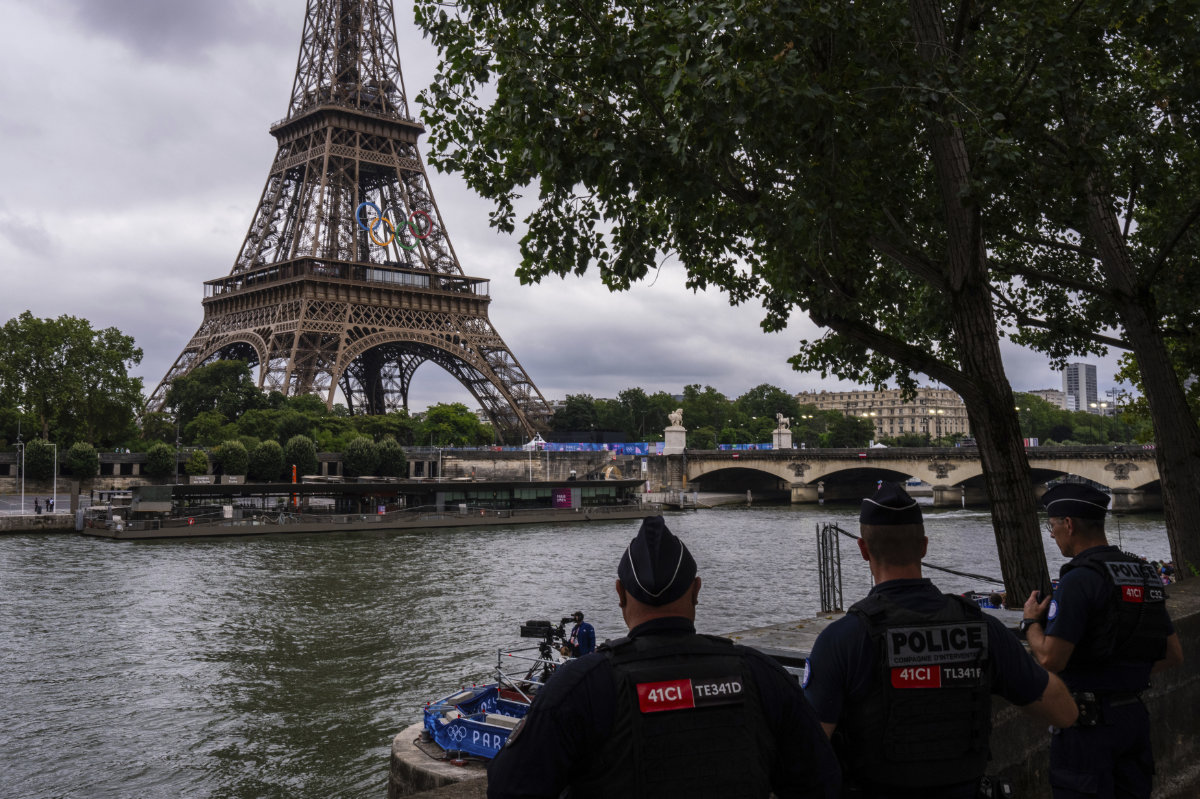PARIS: The vaulting ambition of the Paris Olympics made them risky and hard to police, but French security forces kept thousands of athletes and millions of fans safe — a “gold medal” performance according to Interior Minister Gerald Darmanin.
The two-week sporting extravaganza which finished on Sunday led to a security operation like no other in recent French history, with the mobilization of around 75,000 police, soldiers and private security guards on the opening night on July 26.
There were incidents over the last fortnight — an attack on the French railways, a pitch invader at the 100m men’s final — but nothing that marred the event overall to the widespread relief of organizers.
“These Olympic Games involve both great French medals and a great gold medal for the ministry of the interior and the security forces,” Darmanin said last week as he visited officers on duty in Marseille in southern France.
The sense of satisfaction and self-congratulatory tone of his remarks reflected the immense pressure and doubts raised in the run-up to the Games over whether France’s already stretched resources would be up to the task.
Their first test was securing the Olympic torch relay, a journey through 450 French towns and cities as well as overseas territories.
Then came unexpected parliamentary elections in July, followed by the unprecedented opening ceremony along a six-kilometer (four-mile) stretch of the River Seine which had been giving planners sleepless nights since it was unveiled in 2021.

Police officers stand guard over the Seine River prior to the opening ceremony at the 2024 Summer Olympics on July 26, 2024, in Paris. (AP)
In the end, the 300,000 ticketed spectators who watched from the river banks were troubled by nothing more than torrential rain, with the streets of the capital flooded with uniformed officers.
“For those of us that have been here on the ground, we’ve seen the security footprint here. It is impressive,” Nicole Deal, chief of security for Team USA, said on the day of the ceremony. “I have never seen (one) quite like this in any other Games.”
Two weeks of competition saw packed stadiums, with 743,000 people attending sports venues on a single day on July 30.
Other events from the triathlon to the marathon took place through the streets of the capital.
Around a million people lined the course of the men’s and women’s cycling road races on August 3-4.
“Without any doubt, French security services deserve a gold medal,” French criminologist and university professor Alain Bauer, a vocal critic of the open-air opening ceremony format, told AFP.
He said it was down to “exceptional investment” and “essential changes” which saw organizers notably scale down the size of the opening ceremony crowd under pressure from the interior ministry.
Having been excluded from the Games, Russia was said by French officials to be plotting to destabilize them, with France’s cyber-security agency on high alert for attacks that could disrupt the organizing committee, ticketing or transport.
The arrest of a 40-year-old suspected member of Russian secret services on the eve of the Games set nerves jangling.
The war in Gaza, threats from the Daesh group, and France’s history of home-grown Islamist terror plots and far-right extremism also raised fears about the possibility of an attack that would ruin the party.
Not everyone has found the security operation something to celebrate, however.
Charities complained loudly about repressive policing of the homeless, sex workers and migrants ahead of the Games, while anti-Olympics protest groups say they have been prevented from exercising their democratic rights.
Around 45 activists from the Extinction Rebellion climate change protest group were detained by police the day after the opening ceremony as they prepared to occupy a bridge over the River Seine in central Paris.
The “Saccage 2024” group, which has been running so-called “Toxic Tours” highlighting the downsides of the Games, said it had been prevented from guiding a group of around 20 people to sites in northern Paris last week.
Around 30 riot police and four police cars prevented the tour and three members of the collective were taken to a local police station for questioning.
“No charges were pressed against any of the arrested people at the end of the police custody, further proof that this was in reality an attempt at intimidation,” the group wrote on Instagram.





























